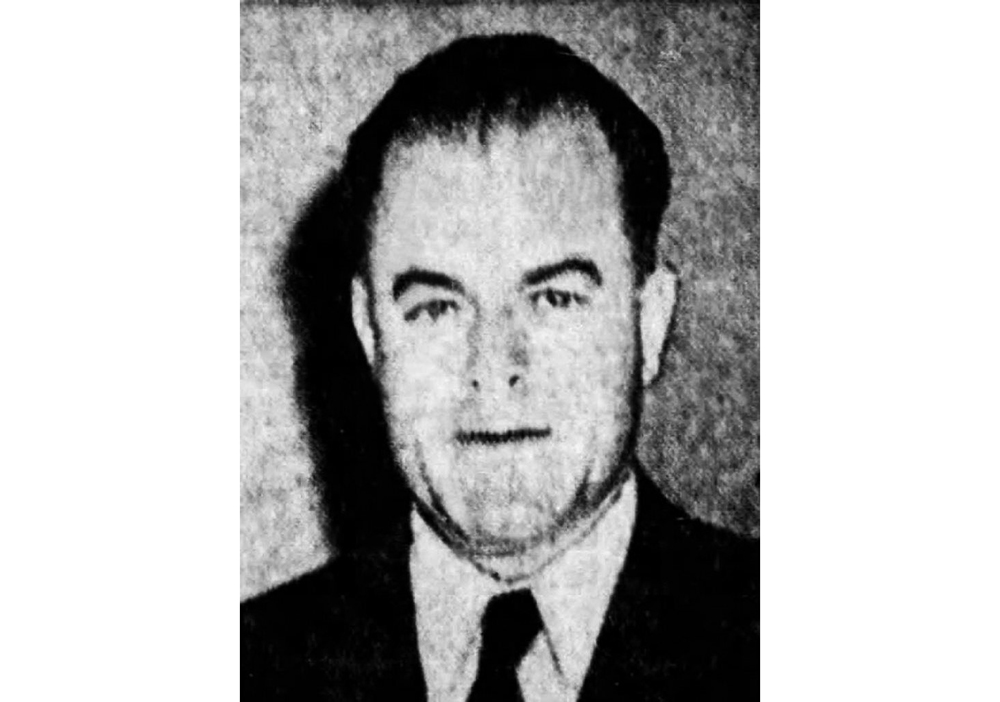By Chuck Darrow
Throughout its colorful history, Atlantic City has borne the imprint of powerful and high-profile men. From Louis “The Commodore” Kuehnle, who was the town’s first overlord of vice and corruption, and Enoch “Nucky” Johnson, on whom Steve Buscemi’s character, “Nucky Thompson,” in the hit HBO series “Boardwalk Empire” was based, to nightclub/casino operator Paul “Skinny” D’Amato, political boss Frank “Hap” Farley and Mafia strongman Nicky Scarfo, AyCee boasts a rogue’s gallery equal to any city’s.
But none of the above had the absolute power—and relative anonymity—of Herman “Stumpy” Orman. And if you never heard of him, you’re not alone. As historian Fred Lavner put it, “Stumpy flew under the radar because in Atlantic City, he owned the radar.”
Born in West Philadelphia in 1910, Orman was nothing if not precocious. In 1922, his family moved to Atlantic City and he soon found himself in the employ of bootleggers who, in the wild-and-wooly days of Prohibition, could go about their affairs unmolested by the authorities—as long as Nucky Johnson got his cut of the profits.
According to Lavner, in whose 2021 book, “Izzy: A Life Inside The Old Philly Jew Mob,” about his gangster uncle, Eddie “Izzy” Lavner, Orman is prominently featured, Orman moved back to Philly, but returned to Atlantic City for good two years later. Such was the life Orman lived, said Fred Lavner, that at age 14, he “shacked up” with a woman known only as “Miss Johnson.”
Although still a boy, Orman was fully involved in bootlegging. “From like 1924 until ’29, he worked ferrying, booze from the boats that were docked offshore, beyond the Coast Guard limits,” explained Lavner. “So he would take the rowboat out late at night in the moonlight, like two, three in the morning, load up the boat with a couple cases of booze, ferry it back to the beach, dump the cases on the beach, go back out, do a couple more. That was his primary job.”
Lavner added that mostly, Orman acted under the auspices of Max “Boo Boo” Hoff, who at the time, ran the rackets in Philadelphia (it’s important to note that from the 1920s until the ‘60s, it was Jews, not Italians, who ruled the Philadelphia and Atlantic City underworlds).
When Hoff’s operations began to be threatened by an Irish gang run by Mickey Duffy (whose real—Polish–name was William Michael Cusick), New York-based uber-mobster Meyer Lansky replaced Hoff with Harry “Nig” Rosen, and it was under Rosen’s patronage that Orman—whose nickname was attributed to the finger he lost while offloading whiskey from a boat–flourished. Incidentally, hardly anyone ever addressed him as “Stumpy,” offered Lavner, because if they did, they’d get a “stump in the eye.”
One of Rosen’s first orders of business was to promote Orman and a man named Cappy Hoffman. The former, said Lavner, was hired because he was “a banger; he was the muscle.” Stumpy, by contrast, was valued for his intelligence: “Lansky and Rosen were fervent believers in the combination of brains and brawn,” said Lavner, who added Orman was no longer involved in transferring illegal shipments of alcohol from boats to the shore. Instead, “He was investing mob money in real estate in Atlantic City and really building up the organization, including forming alliances with Italian gangsters and figuring out a way to get the Irish guys and the interlopers out of Atlantic City (one way was the murder of Duffy in 1931, although the crime officially remains unsolved).
“So by the late Twenties, Nucky Johnson was just a figurehead; [Rosen, Hoffman and Orman] used him for political clout. He still had juice in the Black wards of Atlantic City, but by 1931, he was like the [concierge] to the mob, arranging for tickets to shows and seats at nightclubs.
“Ultimately Stumpy Orman took over.
And that part of the story of the so-called ‘Boardwalk Empire’ was never told.”
Despite the repeal of Prohibition in 1933, there was still plenty money to be made in bootlegging thanks to the exorbitant taxes and levies imposed on the reborn legal- alcohol industry. And, of course, there were fortunes more to be made in prostitution and gambling (as Lavner put it, there were more casinos in Atlantic City then than there are today).
But Orman wasn’t content with ill-gotten gains. His hold on local politicians, law enforcement and courts eased his entry into countless legitimate businesses. “He was an octopus,” said Lavner, whose tentacles extended from the hotel industry to ice cream sales on the beach. “In the Fifties and Sixties, he owned Million Dollar Pier. And Central Pier. And he was the financer of the Hamids [who owned Steel Pier].”
And it was Orman who, in the 1950s, spearheaded the construction of the many (then-modern) motels that replaced the city’s inventory of aging grand hotels (he had at least some ownership in virtually every one erected).
And, like the fictional Nucky Thompson in “Boardwalk Empire,” Orman had complete control of political patronage jobs, even the appointment of judges—and jobs in general.
“It didn’t matter if you were a jitney driver, if you were a fireman, a policeman, if you wanted to sell newspapers on the Boardwalk. Whatever job you wanted to do in Atlantic City, he had to get a ‘taste,’ he had to get paid off,” advised Lavner, who suggested that such was Stumpy’s power that, for the most part, he was able to stifle coverage of his activities, legal and otherwise, in what was then called the Atlantic City Press.
Nonetheless, in 1951, Estes Kefauver, a Democratic senator from Tennessee decided to build his resume for a 1952 presidential run (he was defeated for the nomination that year by Adlai Stevenson, whom he joined on the ticket in 1956 only to be beaten again by Dwight Eisenhower and his vice-president, Richard Nixon). To accomplish that, Kefauver created and chaired a Senate committee that traveled the country investigating organized crime.
Unsurprisingly, Atlantic City was one locale in Kefauver’s cross-hairs, and Orman was a prime target. But while other mobsters (including powerful New York Mafioso Frank Costello) didn’t fare especially well under the committee members’ questioning, Stumpy wasn’t cowed. “Instead of pleading the Fifth [Amendment], he kept telling the senators, ‘It’s none of your business,’” said Lavner. “He basically told them, ‘Go f— yourself!’ It was unheard of.”
Although he had occasional run-ins with the law—including a 1952 indictment for lying on a gun permit application–Orman’s wealth and clout kept him out of jail all his life. What ended his reign in the 1960s was the emergence as the region’s underworld power of the South Philly-based Mafia family led by Angelo Bruno.
So, Stumpy left Atlantic City for South Florida where, noted Lavner, he spent his remaining days “counting his money” and getting together with his old comrades-in-arms like Lansky and Rosen, with whom he’d reminisce about their glory days “and talk about going out and [killing] somebody, or blowing up a casino in Venezuela.”
Orman died in 1987, his story and legacy still unknown to most of the world.
“He’s Atlantic City’s ‘Man of Mystery,’ like the ‘Wizard of Oz’” said Lavner. “He was the man behind the curtain; he had the power. And if anyone challenged him, he’d have hell to pay.”










